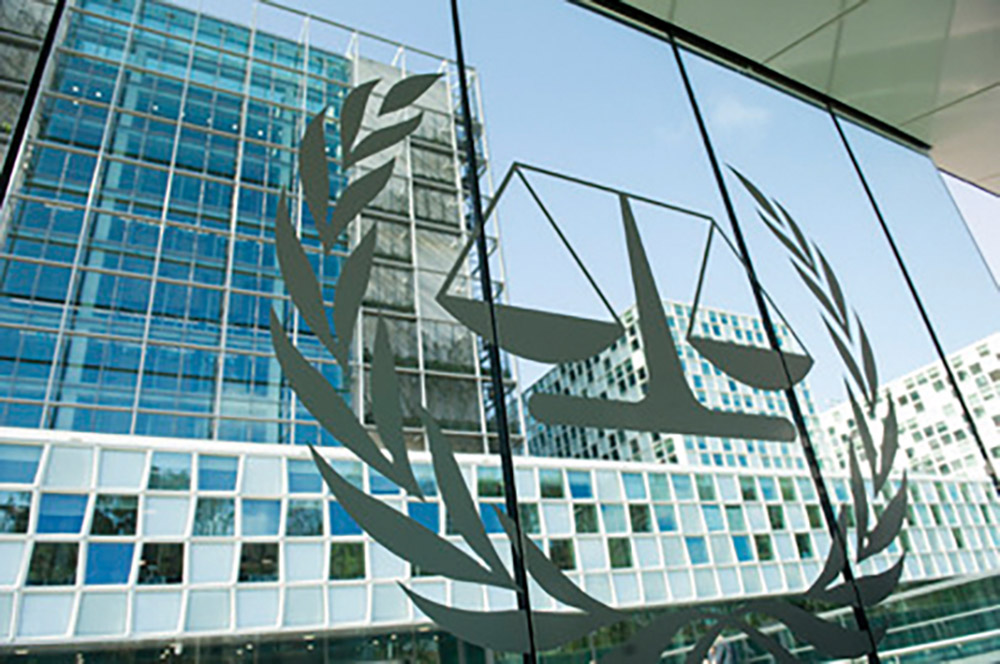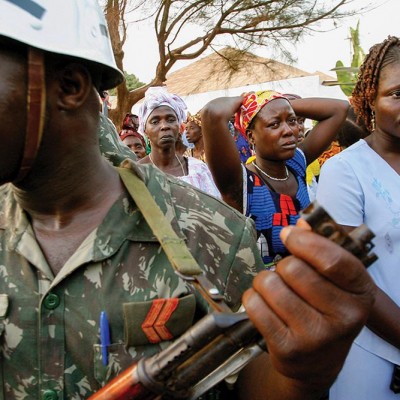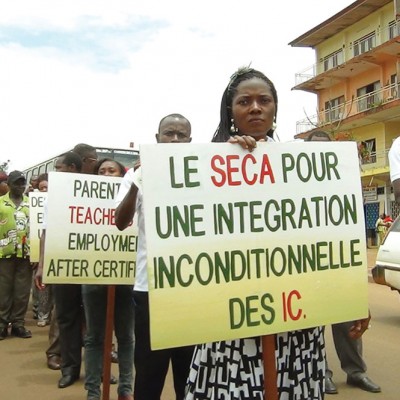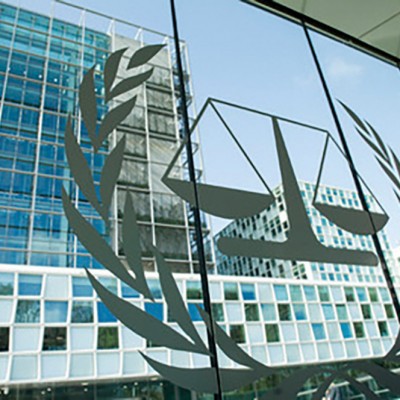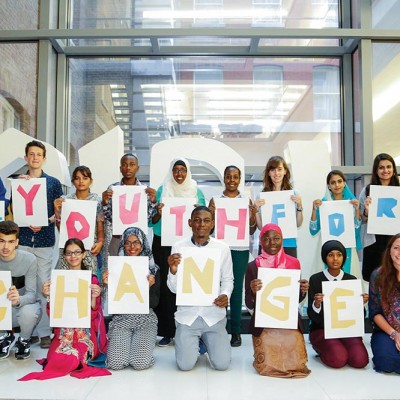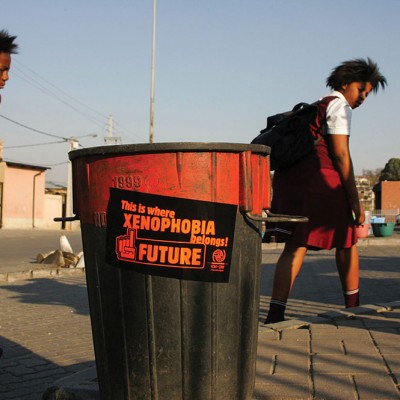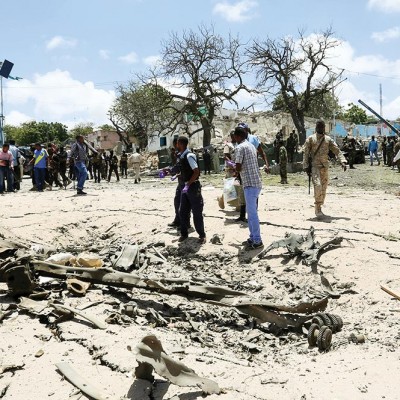Introduction
Domestic legal mechanisms can sometimes face challenges in assuring accountability for any gross human rights violations. The International Criminal Court (ICC) has been applauded for its critical role in ending global impunity through its mandate to intervene when a state lacks the capacity, or is unwilling, to prosecute people accused of the gravest crimes of concern to the international community, such as genocide, war crimes and crimes against humanity.1 The ICC’s modus operandi has attracted much criticism, in particular from Africa, as the only two referrals ever to have been exercised by the United Nations Security Council (UNSC) have involved African parties. This raises certain issues. First, some members of the UNSC are not yet parties to the ICC’s statutory framework, the Rome Statute, yet are able to entrust the ICC by referring matters to this judicial body, which can arguably seem somewhat of a double standard. Second, the ICC is merely a jurisdictional mechanism and does not have the capacity to enforce its decision without full cooperation of its state parties. When state parties do not comply, the ICC must be able to rely on the UNSC to intervene with full support, which does not always occur.
In examining the circumstances under which the UNSC can refer cases to the ICC, this article addresses the referrals of the Darfur situation and Libya, non-signatories of the Rome Statute, and the non-referral of Burma, where gross human rights violations have been widely reported.2 The article concludes that the ICC’s reliance on the UNSC undermines the legal principle of predictability and puts the court’s credibility, integrity and perception of legitimacy into question.
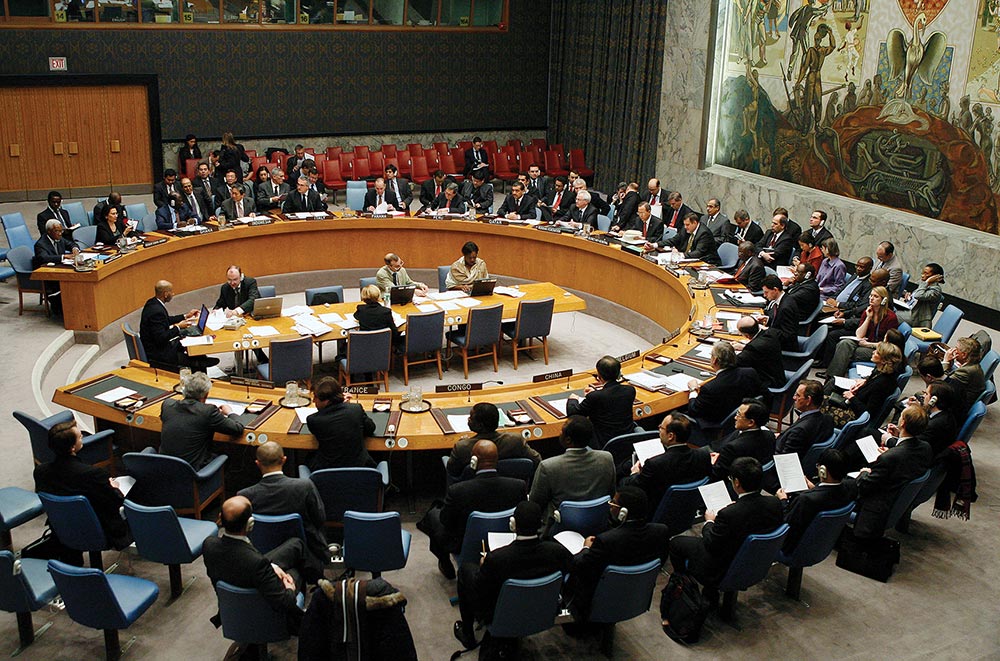
Origins of ICC and UNSC Relations
The Negotiated Relationship Agreement between the United Nations (UN) and the ICC recognises the ICC, in article 2(1), as “an independent permanent judicial institution which […] has international legal personality and such legal capacity as may be necessary for the exercise of its functions and the fulï¬lment of its purpose”.3 Further, article 2(2) stipulates that “[t]he UN and the ICC respect each other’s status and mandate”.4 The preamble of the ICC’s Rome Statute5 describes a correlation between the aims of justice and maintaining peace and security by stating that severe crimes must not go unpunished, as they “threaten the peace, security and well-being of the world”.6 Further, it emphasises the need to put an end to impunity for the perpetrators of these crimes and thus to contribute to the prevention of these crimes.7 Moreover, article 53 of the Rome Statute allows for the prosecutor – empowered to prosecute crimes that would have taken place on the territory of a state party or allegedly committed by a national of a state party – to determine if an investigation should not be initiated when there is “no reasonable basis to proceed” or “an investigation would not serve the interest of justice”.
The establishment of the ICC did not involve the UNSC but, ultimately, the 1998 Rome Conference set up guidelines for the UNSC’s engagement with the ICC. Further worth noting is that the UNSC and ICC act under different mandates. Article 24 of the UN Charter assigns the UNSC “primary responsibility for the maintenance of international peace and security” in conformity with the principles of justice and international law, and allows it to act on behalf of its members. The members must “agree and accept and carry out”8 any decision made by the UNSC under article 25 of the UN Charter. Consequently, the UNSC is responsible for finding peaceful means to settle disputes, if possible, defined in Chapter VI of the UN Charter, and for directing concerted actions to threats to peace under the same convention.
Contextual Background to the UNSC’s Referral Practices
Currently, 34 African states9 are parties to the Rome Statute, giving the ICC a mandate to investigate grave crimes, as defined in article 5 of the Rome Statute. A case can fall under the scope of the ICC using four methods. First, a state that is party to the Rome Statute can request the ICC to exercise its jurisdiction to adjudicate such matters. Second, a state that has not yet ratified the Rome Statute can exceptionally accept the ICC’s mandate to investigate crimes committed by its nationals or on its territory. Third, the ICC prosecutor can initiate an investigation on its own initiative. And fourth, the UNSC can request the ICC to investigate a situation. Article 13(b) in the Rome Statute gives referral authority to the UNSC, even if it relates to a non-state party or by nationals thereof, to exercise its jurisdiction in light of Chapter VII of the UN Charter.
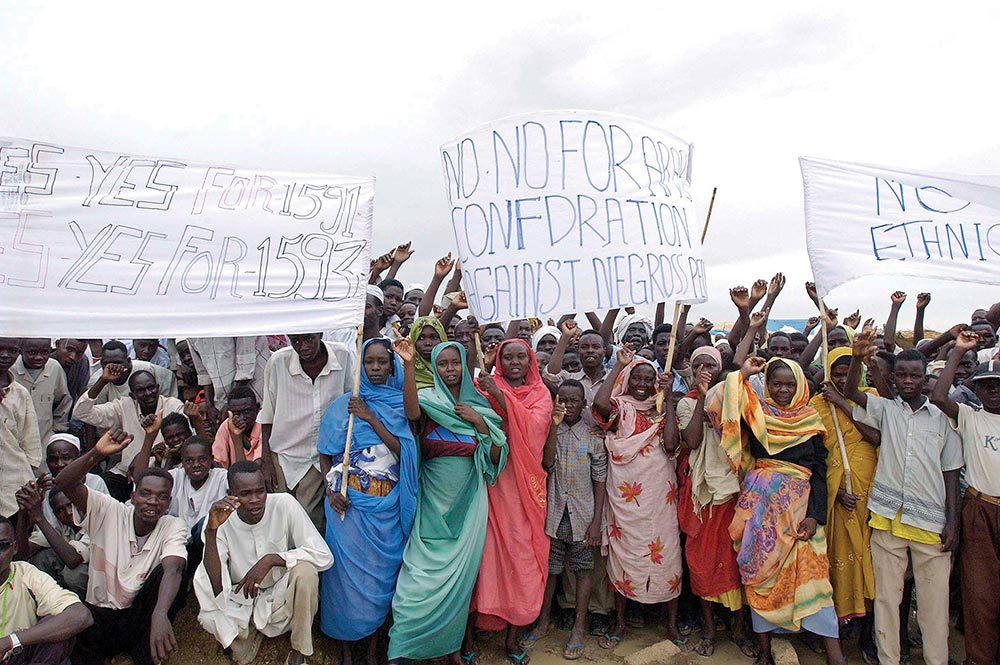
Only two cases involving non-state parties have been referred to the ICC by the UNSC: the case of the Darfur situation in 2005, and Libya in 2011. In April 2004, in its first referral of the Darfur situation, the UNSC issued a presidential statement expressing concern over the humanitarian crisis. This was followed by several resolutions condemning the violence that had taken place, and declaring the situation in Sudan a threat to international peace and security by identifying that there was criminal responsibility for the violent acts. Further, the then-UN Secretary-General, Kofi Annan, established a commission in October 2004 to conduct an investigation on site.10 The commission explained in its findings that the internal armed conflict had involved the Darfur rebel groups, militias known as the Janjaweed and the government of Sudan. Moreover, over a year into the conflict, tens of thousands of people had been caught in the crossfire and paid the ultimate price, which the commission concluded were deliberate and indiscriminate acts against civilians. Many villages in the Darfur region were destroyed and civilians were subjected to rape, looting and torture, leaving about 1.65 million internally displaced persons.11 
The commission found that the government of Sudan and the Janjaweed were responsible for gross violations of human rights, amounting to war crimes and crimes against humanity, and recommended that the UNSC refer the situation to the ICC. On 31 March 2005, the UNSC adopted Resolution 1593, referring the Darfur situation to the ICC, and expressed full Sudanese cooperation with the ICC and its prosecutor.12 However, Sudan refused to arrest and surrender President Omar al-Bashir (despite two arrest warrants, in 2009 and 2010); government minister Ahmad Muhammad Harun; senior militia/Janjaweed leader and member of the Popular Defence Force, Ali Muhammad Ali Abd-Al-Rahman (known as Ali Kushayb) (2007); former Commander-in-Chief of Justice, Abdallah Banda Abakaer Nourain (Abdallah Banda) (2009); and former Minister of National Defence, Abdel Raheem Muhammad Hussein (2012). Al-Bashir still remains in office. In accordance with article 27 of the Rome Statute, no person is exempt from criminal responsibility, regardless of their official capacity. This was also evident in the Libya case, as it too involved individuals holding official or influential positions.
The second UNSC referral, based on Resolution 1970, was Libya, based on the findings of the UN Human Rights Council.13 The findings described the Libyan security forces’ attacks on peaceful protests in Tripoli and Benghazi, with hundreds of casualties.14 In addition, other acts that the council condemned included extrajudicial killings, arbitrary arrests, and the detention and torture of peaceful protestors. In the referral, the UNSC decided promptly – by unanimous vote of all 15 members – to mandate the ICC to investigate Libya. The prosecutor decided on 3 March 2011 that there was a reasonable basis to initiate an investigation. 
On 27 June 2011, arrest warrants were issued for Muammar Mohammed Abu Minyar Gaddafi, Saif Al-Islam Gaddafi and former Libyan intelligence chief Abdullah Al-Senussi for crimes against humanity (murder and persecution). The case against Muammar Gaddafi was eventually terminated due to his death.
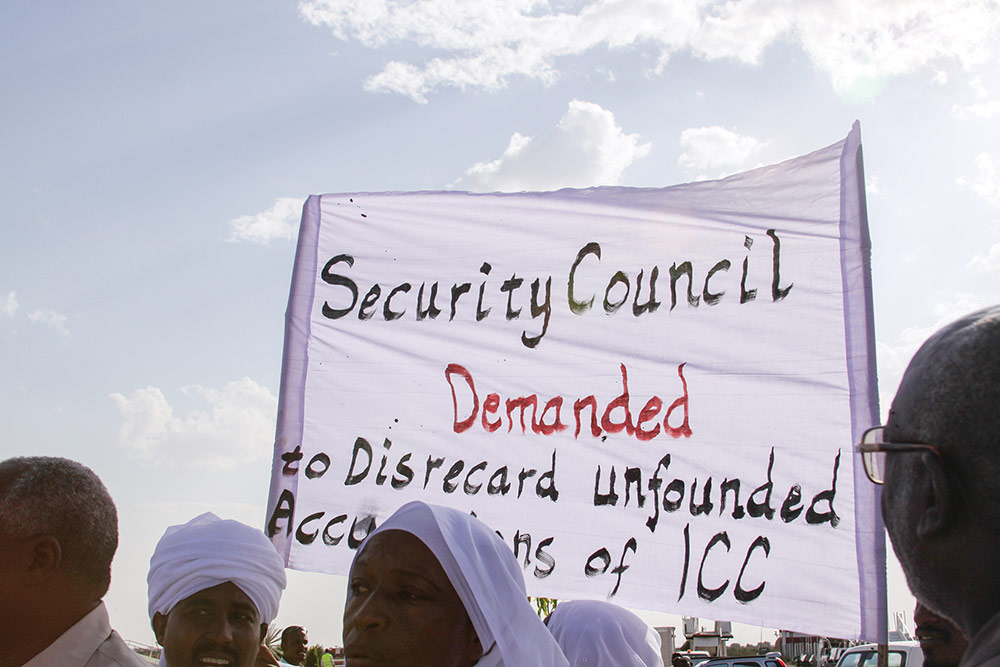
The ICC was established to complement the domestic criminal justice system, in accordance with the Rome Statute’s principle of complementarity. It investigates and prosecutes individuals only if a state does not, cannot or is genuinely unwilling to do so. The Libyan authorities challenged the admissibility of the cases against Al-Senussi and Saif Al-Islam Gaddafi to prosecute both cases domestically. Only the case against Al-Senussi was later declared inadmissible. In Gaddafi’s case, the ICC concluded that the domestic proceeding against him did not cover the same case that was brought before the ICC. Yet, Libya has decided to carry on with the prosecution against Gaddafi, failing to uphold its obligation to cooperate fully with the ICC as defined in Resolution 1970, by not surrendering Gaddafi to the court and therefore rendering the court unable to follow through with its proceeding.
The ICC has made efforts to convince the UNSC to take more actions in demanding Sudan to cooperate fully with the ICC, yet the UNSC has only issued one presidential statement. This lack of support by the UNSC, also detected in the Libya case, undermines the authority of the ICC and has spilled over to some parties to the Rome Statute as they neglect to follow their obligation to cooperate with the ICC, especially in failing to execute arrest warrants – an obligation stated in article 87 of the Rome Statute.
Challenges with Cooperation between the UNSC and the ICC
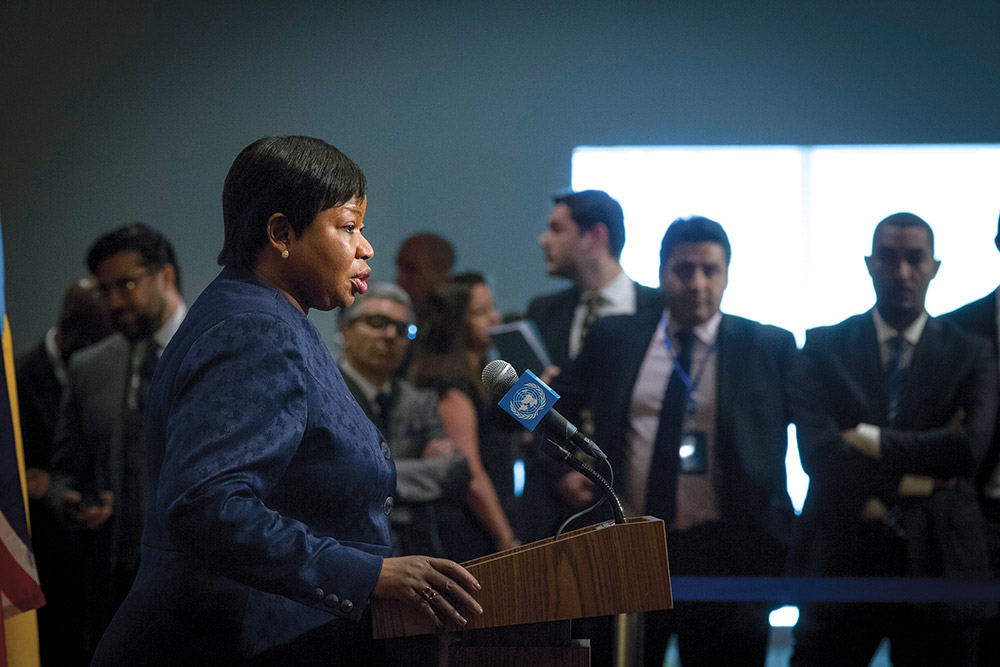
Gross human rights atrocities have occurred since the inception of the ICC, yet the UNSC has only used its referral authority in two cases. Darfur and Libya are not the only conflict situations outside the scope of the ICC’s jurisdiction, where gross abuses of international human rights law and violations of international humanitarian law calls for the UNSC to make referrals. An example that has received media attention due to human rights and humanitarian law violations – 
such as extrajudicial killings, rape and other forms of sexual violence – against people belonging to national or ethnic, religious and linguistic minorities, are persistently carried out in Burma. Recently, researchers and journalists have tried to shed light on the violations and abuse of human rights, particularly against the Rohingya Muslims. Violent attacks resulting in hundreds of cases of injury and death, socio-economic exploitation, forced displacement of about 140 000 people and the denial of citizenship are some of the gross systematic abuses experienced by minorities in Burma.15
In all 30 UN General Assembly Resolutions on Burma, the aforementioned crimes have been documented and calls have been made to the regime to end the existing impunity. However, the military regime has consistently ignored UN recommendations that directed much focus on the lack of an independent judicial investigation. The UNSC began to discuss the grave human rights violations in Burma four years prior to the Libyan referral, but due to not reaching a unanimous vote, none of the discussions concluded in a referral. This begs the question: what are the distinguishing factors that causes the UNSC to use its referral authority in the Darfur region and Libya, but not in Burma? A set of objective criteria to assist in determining the specific grounds for a referral has yet to be expressed. Such criteria would offer more consistency and predictability in future referral practices. Developing such criteria would also provide member states and civil society with a set of principles that outlines the UNSC’s scope of authority, which could be utilised, if needed, to put pressure on the UNSC to push forward the common goal of defeating impunity.
Further, if the objective in the UN Charter is to maintain peace and security, has the UNSC succeeded in Darfur and Libya? Has the ICC succeeded in combating impunity for gross human rights violations in these territories, as per the Rome Statute’s objective? In a statement to the UNSC, the ICC has raised awareness of the UNSC’s lack of efforts in maintaining peace and security in the Darfur situation by not “providing necessary technical, political, peacekeeping and other appropriate resources to assist in investigations, arrests and other elements of cooperation”.16 The ICC has also struggled with fulfilling its objective to combat impunity, since the judicial process cannot take place without successfully executing arrest warrants, such as in the case of Sudanese president al-Bashir. Further, chief prosecutor Fatou Bensouda told the UNSC that “[s]ystematic and wide-spread crimes continued to be committed with total impunity in Darfur nearly 10 years since the situation was referred to the International Criminal Court”,17 which speaks to a lack of efficiency in the prosecutions carried out by the ICC.
The UNSC is, in its entirety, a political body. Thus, there is a strong likelihood that decisions to refer a situation to the ICC are influenced by its political nature. Moreover, three of its five permanent members are not parties to the Rome Statute, but the UNSC can still refer situations involving states that are not parties to the same Rome Statute. This can be perceived as damaging to the ICC’s credibility, integrity and perception of legitimacy that it so heavily relies on. Although the ICC is not a component of the UN system, the Rome Statute recognises certain prerogatives for the UNSC, such as being granted referral authority. Due to the structure and nature of the UNSC, there is a likelihood of the ICC being pressured to pursue certain investigations springing from a referral rather than others. In the same vein, the same type of pressure can arguably inflict the ICC, if the UNSC uses its support as a bargaining chip should the ICC refuse to take on its referrals. Therefore, it is vital that the UNSC respects the status and mandate of the ICC. The referral authority does provide the UNSC with a type of control that does not exist within domestic criminal justice systems, which raises great concern and highlights the importance of the UNSC to act fairly and impartially and eliminate any opportunities for bias when deciding on which cases to refer to the ICC. The ICC could be greatly compromised if referral decisions are made based on the benefit to UNSC permanent members’ political ties or their political interests.
Conclusion
A quintessential element that significantly affects the work of the ICC is the consistent cooperation of states. Yet, some non-state parties and parties to the Rome Statute refuse to comply with its obligation to cooperate with the ICC, such as in the case involving al-Bashir. The ICC does not have enforcement forces; it relies on states’ willingness to assist to execute its mission. This is indicative of its lack of full authority and influence. The ICC can be deemed compromised, as it relies on the UNSC to back up the ICC with its power to mandate cooperation from all UN member states. Establishing consistency in investigating cases of gross crimes will heavily enhance the role of the ICC to prevent gross violations of human rights amounting to war crimes, which will further strengthen the UNSC’s central mission to maintain international peace and security. Further, in the referrals regarding the situations in Darfur and Libya, the UNSC articulated an obligation to cooperate with the ICC only directed to the countries involved in the referrals. Parties to the Rome Statute fall by default under this obligation though the UNSC, with the authority to impose binding obligations on all member states, simply urges non-state parties to do the same. In the context of the two referred cases, follow-up assistance by the UNSC has continuously been essential, particularly with regard to the non-enforcement of arrest warrants. This could arguably explain the lack of progress in both cases.
In addition, there is a need for the UNSC to invest in a working group to establish objective criteria and credible processes for determining potential referrals to the ICC. This will allow member states and civil society to argue for referrals – in situations such as Burma, and future situations where impunity still remains – and ensure the legitimacy of the ICC. Further, to enhance the efficiency of the referrals, it is imperative to develop a policy that fosters better coordination and a stronger working relationship between the UNSC and the ICC.
Endnotes
- These crimes fall within the jurisdiction of the ICC, stipulated in article 5 of the Rome Statute. Genocide is the destruction, in whole or in part, of a national, ethnic, racial or religious group, carried out with the specific intent to exterminate. Crimes against humanity are acts (murder, torture, sexual crimes) committed as part of a generalised and systematic attack against a civilian population (a crime against humanity can be committed during an armed conflict as well as in times of peace). War crimes are serious violations of the laws and customs applicable to armed conflicts (whether international or domestic).
- IUN Human Rights Council (2016) ‘Report of the Special Rapporteur on the Situation of Human Rights in Myanmar’, 
8 March 2016, A/HRC/31/71, Available at: <http://www.refworld.org/docid/56ead91d4.html> [Accessed 5 July 2017].
- International Criminal Court (ICC) (2004) ‘Negotiated Relationship Agreement Between the International Criminal Court and the United Nations’, 22 July 2004, ICC-ASP/3/Res.1, Article 2(1), Available at: <http://www.refworld.org/docid/51b080fa4.html> [Accessed 18 May 2017].
- Ibid., Article 2(2).
- UN General Assembly (2011) ‘Rome Statute of the International Criminal Court (last amended 2010)’, Available at: <http://www.refworld.org/docid/3ae6b3a84.html> [Accessed 18 May 2017].
- Ibid., Preamble of the Rome Statute of the International 
Criminal Court.
- Ibid.
- United Nations (1945) ‘Charter of the United Nations’, 
24 October 1945, 1 UNTS XVI, Available at: <http://www.refworld.org/docid/3ae6b3930.html> [Accessed 18 May 2017].
- ICC (n.d.) ‘States Parties to the Rome Statute: African States’, Available at: <https://asp.icc-cpi.int/en_menus/asp/states%20parties/african%20states/Pages/african%20states.aspx> 
[Accessed 27 February 2017].
- UN (2005) ‘Report of the International Commission of Inquiry on Darfur to the United Nations Secretary General: Pursuant to Security Council Resolution 1564 of 18 September 2004’, 
25 January, Available at: <http://www.un.org/news/dh/sudan/com_inq_darfur.pdf> [Accessed 27 February 2017].
- Ibid.
- Eleven UNSC votes were in favour: Argentina, Benin, Denmark, France, Greece, Japan, Philippines, Romania, Russia, Tanzania and the United Kingdom. The four abstentions were Algeria, Brazil, China and the United States.
- The UN Human Rights Council is an intergovernmental body included in the UN system consisting of 47 states, which are responsible for the promotion and protection of human rights around the world.
- UN Human Rights Council (2011) ‘Situation of Human Rights in the Libyan Arab Jamahiriya’, 25 February 2011, A/HRC/S-15/2, Available at: <http://www.refworld.org/docid/4d6ceb302.html> [Accessed 28 February 2017].
- UN Human Rights Council (2015) ‘Report of the Special Rapporteur on the Situation of Human Rights in Myanmar’, 
9 March 2015, A/HRC/28/72, Available at: <http://www.refworld.org/docid/55082e974.html> [Accessed 28 February 2017].
- Coalition for the ICC (2015) ‘Letter to the UN Ambassadors of States Parties to the Rome Statute of the ICC, Members of the UN Security Council from the Coalition for the International Criminal Court’, Available at: <http://www.iccnow.org/documents/CICC_Letter_on_Sudan_and_the_ICC.pdf> [Accessed 27 February 2017].
- UN Security Council (2014) ‘We Have Failed Darfur’s Victims, International Criminal Court Prosecutor Tells Security Council, Noting Continuing “Total Impunity”‘, Available at: <http://www.un.org/press/en/2014/sc11441.doc.htm> [Accessed 27 February 2017].

